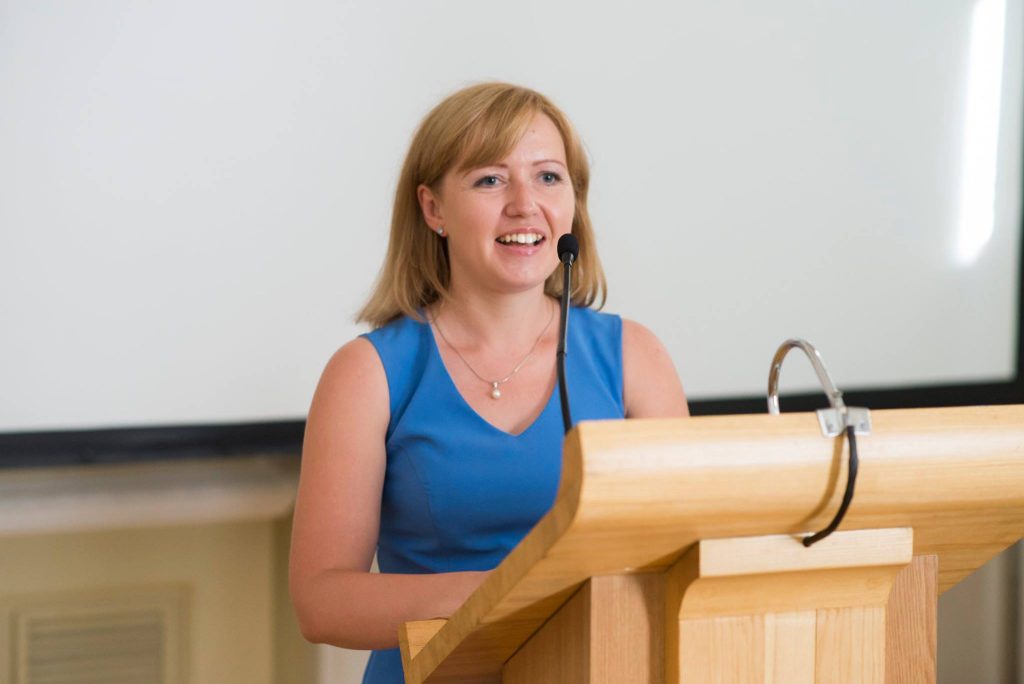Professional development programme “Multilingualism and Cooperation in Language Teaching and Learning” has begun
Last week the professional development programme for teachers (excluding higher education staff) started. The programme entitled “Multilingualism and Cooperation in Language Teaching and Learning” was developed by a joint team from the Institute of Foreign Languages, the Faculty of Humanities and colleagues from universities in other countries.
According to the FL Director Dr. Teresė Ringailienė, who led the working group that developed the programme, its aim is to improve the competencies of language teachers, apply modern technologies, multilingual pedagogy principles, translation methodologies and communication education models in order to effectively develop pupils’ language skills, promote multilingualism and strengthen their social-emotional intelligence in both formal and non-formal educational activities.  This programme is intended for language teachers (teaching foreign languages and Lithuanian as a foreign language at levels A1-B2) who must be prepared not only to teach a specific language, but also to promote openness to linguistic diversity and integrate different languages and cultures into the educational process.
This programme is intended for language teachers (teaching foreign languages and Lithuanian as a foreign language at levels A1-B2) who must be prepared not only to teach a specific language, but also to promote openness to linguistic diversity and integrate different languages and cultures into the educational process.
The programme intends to promote the use of technology in language teaching, introduce the principles of multilingualism and language-sensitive teaching for inclusive education, teach how to apply translation activities in language lessons, deepen teachers’ abilities to apply various language teaching methods and strategies, to enhance the teaching/learning process with non-formal activities and game elements, to develop communication skills and social-emotional intelligence through mediation and other communication activities and to deepen the knowledge of public speaking skills, reducing pupils’ fear of public speaking.
The programme emphasizes cooperation between language teachers (English, German, French, Spanish and Lithuanian as a foreign language) and encourages the exchange of methodological experience. While English, German and French teachers have abundant resources at their disposal, the training of Spanish teachers in Lithuania is only starting, and the teaching of Spanish as a first foreign language in schools will begin in 2026. In recent years, there has been a significant increase in the demand for teaching Lithuanian as a foreign language. Teaching Lithuanian as a native language has a long tradition, but teaching it as a foreign language requires a completely different perspective. Teachers of Lithuanian as a foreign language also work with a multilingual and multicultural audience, which is important to use as an asset for learning from each other.
The programme will be taught not only by VMU lecturers, but also by Dr. Déirdre Kirwan from Trinity College, Dublin, Ireland, Dr. Martina Paradiž from Primorska University, Slovenia, Dr. José Hernández Ortega from Complutense University, Spain, and Dana Engel from Goethe Institute.









